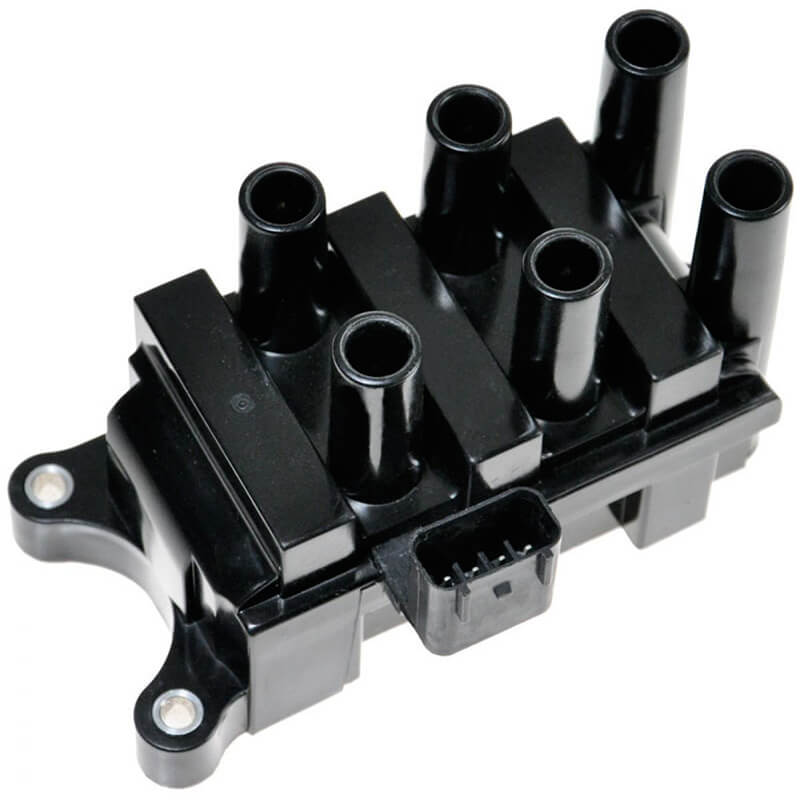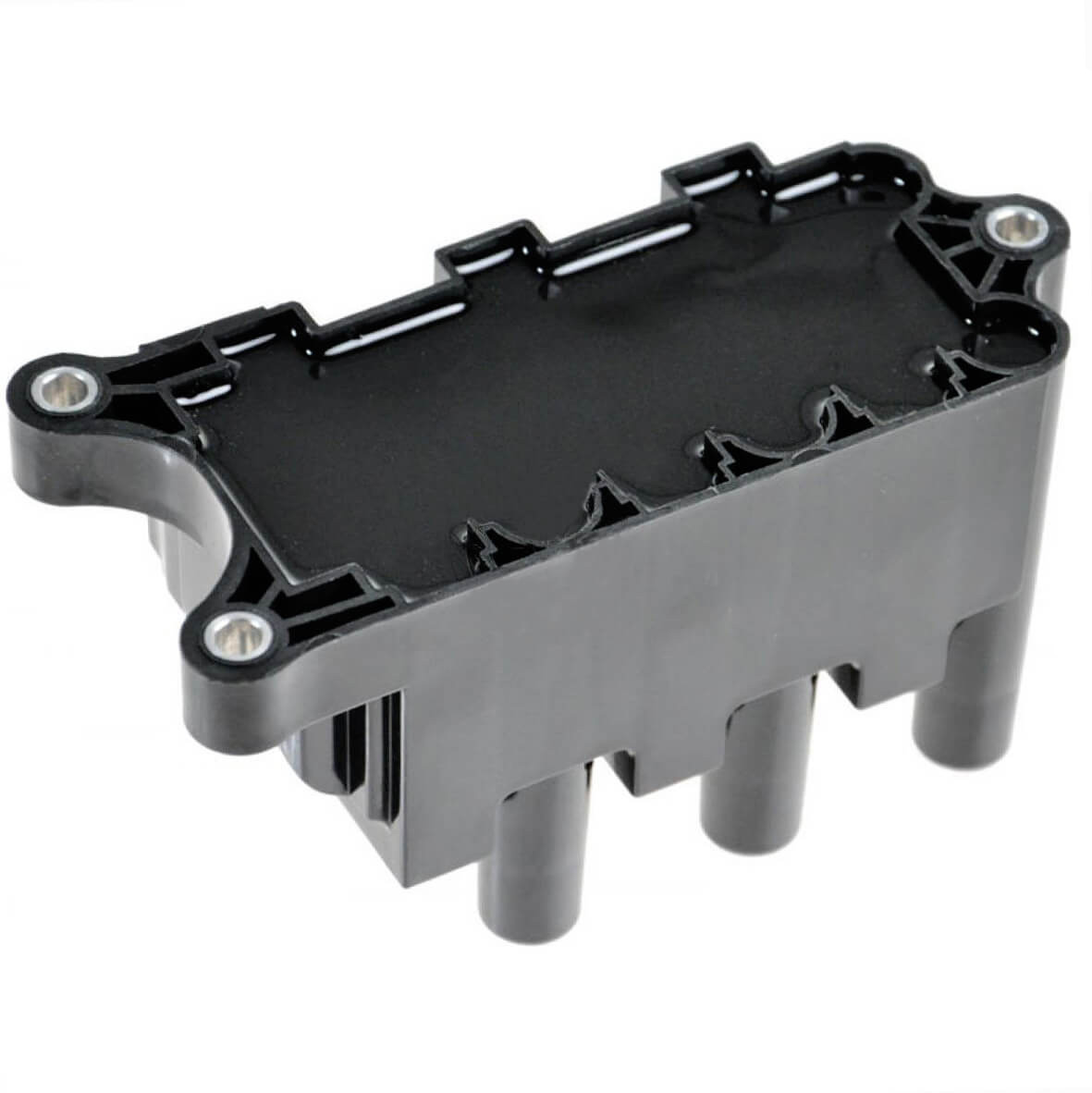Buy Ignition Coil
What is an Ignition Coil / Spark Plug / Coil Pack
A car’s ignition coil pack can be like giving a room of four or more friends a high five (the average commuter car has 4, 6, or 8 cylinders). How so? Imagine there are four or more friends surrounding you, now picture your vehicle’s distributor cap rotor spinning around to each point contacting one another to send a message that will spark a cylinder. This will start the vehicle's ignition from your spark plugs on older model vehicles, or in newer models, a computer chip will do the same thing. Vehicles will either use a distributor or coil pack, not both since they do the same job. Distributors which were used up to the mid 90’s-early 2000’s are the older, mechanical way of controlling spark timing; while coil packs are part of a more modern, computerized system. Older model vehicles with manual distributor ignitions will have a canister coil with wires attached to distributors. These wires will send messages to ignite the spark plug from the ignited coil.
How It Works
The distributor connects to the ignition coil (not a coil pack, just a single ignition coil) via the central rotor inside the distributor. As this rotor spins, the end of it touches several metal contact points attached to the distributor cap/housing. As the rotor comes into contact with each of these points it sends power to that contact point. From here, the power is sent to the spark plugs via the spark plug wires. Once the power reaches the plug, it provides the spark that ignites the fuel/air mixture in the cylinder.
Modern-day vehicle’s use coil packs that communicate directly with a computer chip located in the engine computer to create a spark. These chips in the engine computer are known as ignition coil drivers. One of their main functions is to send a ground trigger which tells the coil pack to fire. The coil pack then sends the actual voltage to the individual spark plugs. The ECM computer chip will send an electronic message to each point initiating a spark of 20k-45k volts in the cylinder.
As the coil pack receives a signal from the ECM, it distributes the voltage to the appropriate spark plug to ensure that the correct cylinder is ignited at the precise moment to maintain proper engine timing and operation. The coil provides the power to the spark plug which ignites the fuel/air combination mixture inside the cylinder. This, therefore, creates combustion from the ignited spark plugs.
If there is an interruption in the communication between the spark plugs and coils, this could cause your car to be less fuel efficient, therefore you'd be driving fewer miles per the gallon, compared to when performing at optimum efficiency. Likewise, if the vehicles spark plugs are not igniting properly, this will cause a misfire. Over time, a misfiring engine can cause damage to several parts, including internal engine components like valves, pistons, and cylinder walls, as well as exhaust components like the catalytic converter(s) and oxygen sensors. This situation should not be taken lightly, as any damage incurred to the vehicles internal engine components can be expensive to replace.
Note: Spark plugs are not the only cause of a misfire, and the potential damage caused is dependent on the source of the misfire.
Newer models, where a computer controls the ignition, and not the distributor, the coil is found near the spark plugs. This is the 3rd method of power distribution to the spark plugs referred to as Coil On Plug (COP) ignition. In this case, instead of having a coil pack that sends the signal to all of the spark plugs at the appropriate times, each spark plug has its own ignition coil. The ECM will communicate with each coil to instruct them when to fire based on information received from the cam or crank sensors.
Replacement
It is therefore recommended to perform routine maintenance on your spark plugs. (Spark plugs typically last for 10k-60k miles, depending on the quality of the plug and materials used). Rather than temporarily repairing a broken coil, it is recommended to simply replace one before other issues occur.
Here are some sample images representative of our extensive Ignition Coil catalog:
We are currently in the process of listing all the Ignition Coils we have in-stock available for purchase. We plan to have them all on our website as soon as possible, in the meantime please give our office a call or simply fill out the request form below







